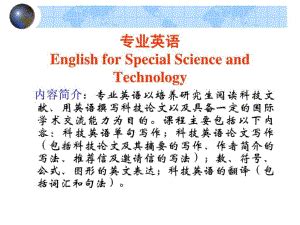Mastering Technological English Vocabulary
Technological English vocabulary is essential for effective communication in today's digital age. Whether you're a student, professional, or enthusiast, mastering these terms can greatly enhance your understanding and proficiency in various tech-related fields. Below, we'll delve into key technological vocabulary across different industries:
In the realm of IT, staying updated with the latest terminology is crucial. Here are some fundamental terms:
- Algorithm: A set of rules or instructions designed for a computer to perform specific tasks.
- Encryption: The process of converting data into a code to prevent unauthorized access.
- Cloud Computing: The delivery of computing services over the internet, including storage, databases, and software.
- Artificial Intelligence (AI): The simulation of human intelligence processes by machines, such as learning, reasoning, and problem-solving.
- Big Data: Large sets of structured or unstructured data that are analyzed to reveal patterns, trends, and associations.
Engineers encounter a unique set of vocabulary specific to their field. Here are some key terms:
- Prototype: A preliminary model of something, typically used for testing or demonstration purposes.
- Automation: The use of control systems and technology to automate processes, reducing the need for human intervention.
- Finite Element Analysis (FEA): A numerical technique used to predict how structures and materials will respond to various physical effects.
- Robotics: The interdisciplinary branch of engineering and science that deals with the design, construction, operation, and use of robots.
- Integrated Circuit (IC): A miniature electronic circuit consisting of semiconductor devices and passive components interconnected to perform a specific function.
In the rapidly evolving field of biotechnology, understanding specialized terminology is essential. Here are some pertinent terms:

- Genome: The complete set of genes or genetic material present in a cell or organism.
- CRISPR: A revolutionary gene-editing technology that enables precise modification of DNA sequences.
- Bioprocessing: The use of biological materials, such as cells or enzymes, to manufacture products in industries like pharmaceuticals and food production.
- Stem Cells: Undifferentiated cells with the potential to develop into various specialized cell types.
- Bioinformatics: The interdisciplinary field that combines biology, computer science, and information technology to analyze and interpret biological data.
Finance and fintech are heavily reliant on technological innovations. Here are some important terms in this domain:
- Cryptocurrency: Digital or virtual currencies secured by cryptography, often operating independently of a central bank.
- Blockchain: A decentralized, distributed ledger technology used to record transactions across multiple computers securely.
- Algorithmic Trading: The use of computer algorithms to execute trades automatically based on predefined criteria.
- Fintech: Financial technology that encompasses a range of innovative products and services, including mobile payment systems, peer-to-peer lending, and robo-advisors.
- Risk Management: The process of identifying, assessing, and prioritizing risks followed by coordinated application of resources to minimize, monitor, and control the probability and impact of unforeseen events.
Mastering technological English vocabulary is indispensable for anyone navigating today's fast-paced and dynamic industries. By familiarizing yourself with the terminology relevant to your field of interest, you can enhance your communication skills, collaborate effectively with peers, and stay abreast of the latest developments. Continuously expanding your vocabulary will empower you to thrive in the ever-evolving landscape of technology.
